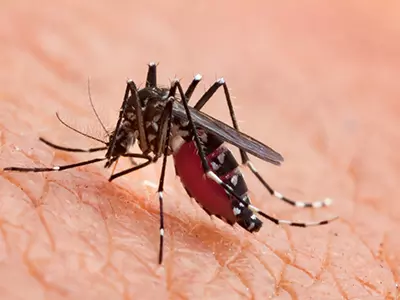West Nile Virus

West Nile virus (WNV) was first detected in the United States in New York in 1999. Since then, WNV has spread to 48 states, Canada, and Mexico. Last year there were 4,268 human cases of WNV detected in the United States, including 177 deaths. California accounted for 292 cases and 7 fatalities.
Horses have a high mortality rate when they contract WNV. In California, 58 horses were infected and 24 died as a result of the disease in 2006. Be sure to vaccinate your horse and reduce mosquito-breeding areas near your stable!
West Nile virus activity has been detected in all counties and there is no human vaccine available at this time. Halting the mosquito's breeding areas in backyards and protecting yourself with insect repellents is critical to reducing your risk of contracting WNV.
The primary carrier of WNV, the Culix mosquito, is also known as the "artificial container mosquito". It prefers to lay its eggs in many areas found on private property. Any water that sits for more than a week can produce hundreds of mosquitoes that may transmit WNV. It is important to check your property for any standing water, including water troughs, rain gutters, flower pots, pet watering bowls, irrigation ditches, stock ponds, and drainage basins.
Birds, especially corvids (crows, black birds) and raptors (hawks, falcons) are very susceptible to WNV. If you find a dead bird, call 1-877-WNV-BIRD. Contact the SCC Vector Control District at (408) 918-4770 to report possible mosquito development sources, have any questions concerning WNV or would like a free brochure. Mosquito eating fish are also available free of charge to county residents.
For more information about the West Nile virus, view the links and attachments below.